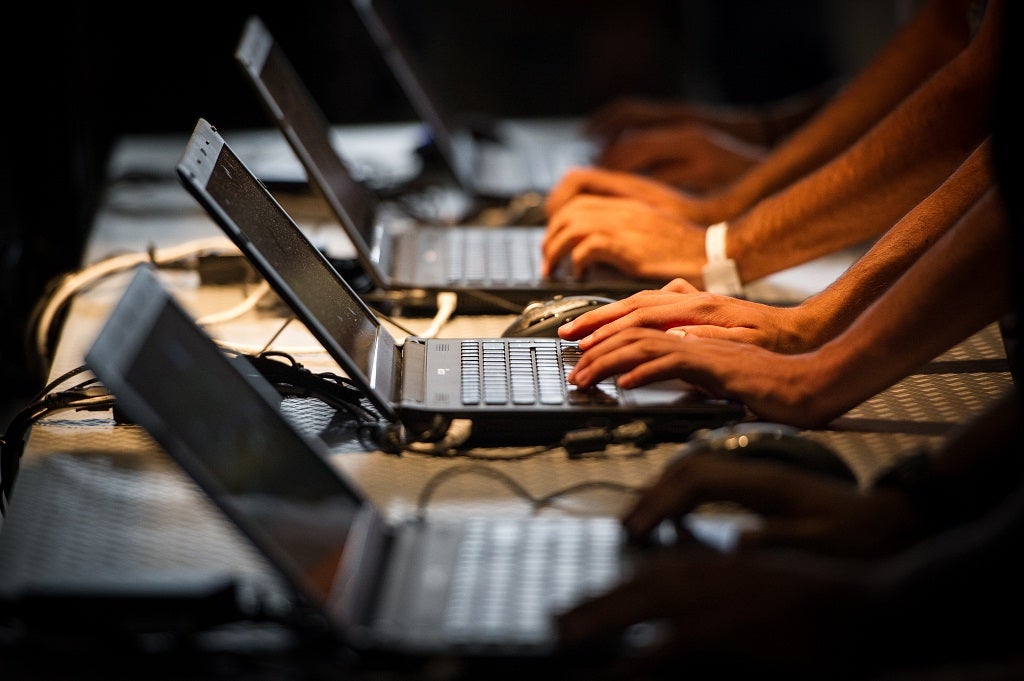British digital freedoms are under threat. The public should fight back
With government plans to monitor our online and mobile phone activity, it's time to take a stand against unneccessary surveillance

Freedom House, a Washington-based rights advocacy group, published a searching assessment of global online freedoms last week. It made a surprising read. While the UK may chide China for its domestic censorship of the net, it seems that Britain itself is bested in the realm of digital liberty, along with all other nations examined, by that unsuspected bastion of internet freedom: Estonia.
Tallinn is not known for its open style of government, but Stenbock House nonetheless appears to be willing to tolerate online freedoms on a greater scale than Westminster. And the Estonians are not alone in this regard. Seven nations were rated as “freer” than the UK in the study - Hungary and The Philippines among them. Worryingly, Britain was a mere five points shy of the dividing line between “free” and “partly free” (marks were given out of a hundred). It was the least liberal of the Western European countries assessed.
This may come as something of a surprise to many, but it appears that British internet freedoms (although far from being seriously restricted) are moving in a downward trajectory - a trend that looks set to continue apace.
In the coming months, parliament will debate surveillance proposals contained in the draft “Communications Data Bill”. If passed into law, it could result in the realisation of government plans to establish the mooted communications capabilities development programme (CCDP) which would see the online and mobile phone activity of all British citizens recorded
The potential for abuse of such a programme is enormous and should prompt careful reflection among legislators, particularly given the lessons of recent history. A US senate study recently concluded that the “multibillion-dollar information-sharing program created in the aftermath of 9/11 has improperly collected information about innocent Americans and produced little valuable intelligence on terrorism. “
What’s more, the provisions of the suggested Data bill may not even be necessary to fight the threats that the government says it is designed to tackle. David Cameron has justified the plans as a means to fight terrorism and details of the proposal are available in a counter-terrorism section of the Home Office website. Yet as the British NGO Privacy International wrote earlier in the year about the CCDP: "In a terrorism investigation, the police will already have access to all the data they could want. This is about other investigations."
Menace of surveillance
The watchdog also advised that the draft bill was problematic with regard to the human rights of British citizens. A statement of their website opined that the proposed establishment of the CCDP “raises a number of concerns with regards to the right to privacy under Article 8 of the Human Rights Act. There are also concerns about the right to free expression under Article 10 and the right to freedom of assembly and association under Article 11 due to the potential chilling effect of the ‘menace of surveillance.’”
What’s most alarming is that such likely developments appear to be consistent with a global shift toward increased governmental surveillance and restriction of digital freedoms. The Freedom House report concludes that “restrictions on internet freedom in many countries have continued to grow, though the methods of control are slowly evolving and becoming less visible.” The passage of the proposed Communications Data Bill would place Britain strongly in line with such trends.
In recent days, further troubling news on proposed government surveillance plans emerged. As this newspaper reported, plans to use high-definition CCTV “capable of identifying and tracking a person's face from half a mile away” in Britain’s cities are being considered by the government.
Preparations for the use of police drones are also underway, potentially opening the way for private companies to use the technology for questionable ends.
If there’s a slippery slope to worry about here, it seems we are teetering on the edge of it. Only an active citizenry awake to the dangers of big brother Britain will be able to keep up the sort of pressure required to get the government to rethink some of its more excessive plans. It is crucial that we stay informed about the threats to our interests.

Join our commenting forum
Join thought-provoking conversations, follow other Independent readers and see their replies